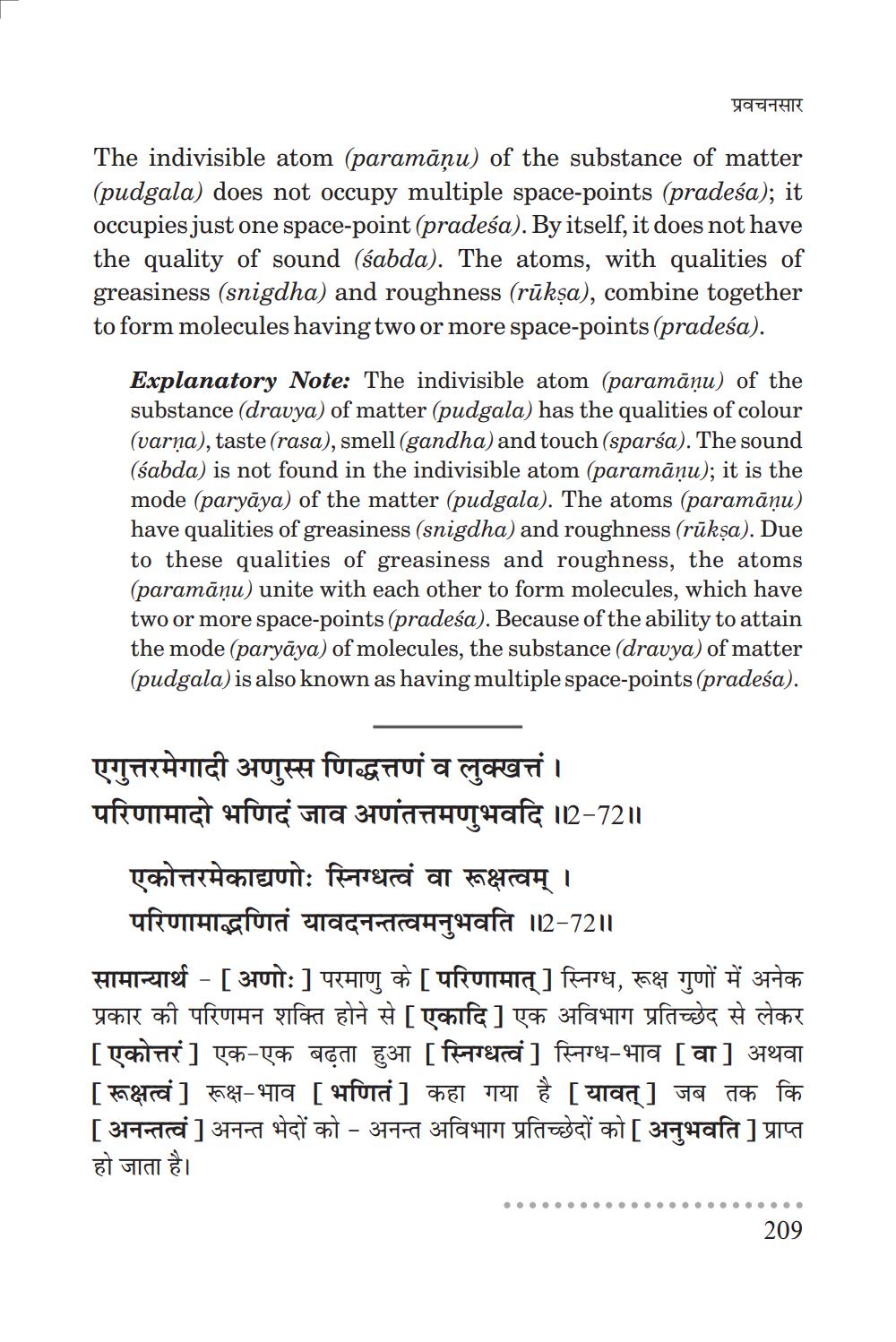________________
प्रवचनसार
The indivisible atom (paramāņu) of the substance of matter (pudgala) does not occupy multiple space-points (pradeśa); it occupies just one space-point (pradeśa). By itself, it does not have the quality of sound (sabda). The atoms, with qualities of greasiness (snigdha) and roughness (ruksa), combine together to form molecules having two or more space-points (pradeśa).
Explanatory Note: The indivisible atom (paramāņu) of the substance (dravya) of matter (pudgala) has the qualities of colour (varna), taste (rasa), smell (gandha) and touch (sparsa). The sound (Sabda) is not found in the indivisible atom (paramānu); it is the mode (paryāya) of the matter (pudgala). The atoms (paramāņu) have qualities of greasiness (snigdha) and roughness (ruksa). Due to these qualities of greasiness and roughness, the atoms (paramāņu) unite with each other to form molecules, which have two or more space-points (pradeśa). Because of the ability to attain the mode (paryāya) of molecules, the substance (dravya) of matter (pudgala) is also known as having multiple space-points (pradeśa).
एगुत्तरमेगादी अणुस्स णिद्धत्तणं व लुक्खत्तं । परिणामादो भणिदं जाव अणंतत्तमणुभवदि 2-72॥
एकोत्तरमेकाद्यणोः स्निग्धत्वं वा रूक्षत्वम् ।
परिणामाद्भणितं यावदनन्तत्वमनुभवति ॥2-72॥ सामान्यार्थ - [अणोः] परमाणु के [ परिणामात् ] स्निग्ध, रूक्ष गुणों में अनेक प्रकार की परिणमन शक्ति होने से [ एकादि] एक अविभाग प्रतिच्छेद से लेकर [एकोत्तरं] एक-एक बढ़ता हुआ [स्निग्धत्वं] स्निग्ध-भाव [वा ] अथवा [रूक्षत्वं] रूक्ष-भाव [भणितं] कहा गया है [यावत् ] जब तक कि [अनन्तत्वं] अनन्त भेदों को - अनन्त अविभाग प्रतिच्छेदों को [अनुभवति ] प्राप्त हो जाता है।
........................
209




